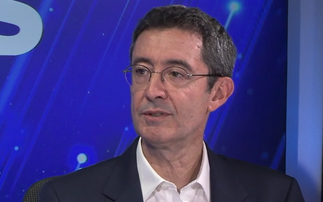
Decision makers at public and corporate pension schemes share their views on asset allocation, sustainability and risk in their real asset investments.
In late 2022, Aviva Investors polled 500 global institutional investors, representing $3.5trn AUM, on their appetite for real assets, including those with a sustainable focus.
Pension plans, comprising corporate defined benefit (DB) and defined contribution (DC) plans and government/other public pension schemes (public), accounted for broadly two-fifths of our survey cohort. European plans had the greatest representation among corporate schemes, while North American plans made up almost half of public plans.
Inflation-linked income increasingly important
Corporate DB (64 per cent) and public plans (54 per cent) cited diversification as the primary reason for allocating to real assets. For DC plans, however, the need for inflation-linked income was the main driver, picked out by 63 per cent of schemes. Given the current environment, it is no surprise the overall pension scheme segment reported a material uptick in inflation-linked income motivations over time, with over half (54 per cent) indicating it was the most important reason for allocating to real assets, up from 35 per cent three years ago.
Public plans leading demand
Public plans look set to be the biggest drivers of increased demand for real assets. Seventy per cent expect to up their allocation over the next two years versus 57 per cent of DB schemes and 51 per cent of DC plans — by comparison, 64 per cent of the overall survey population expected to add to real assets over the next couple of years. North American public plans showed a particular appetite for the asset class: 76 per cent predicted their exposure will rise in the next two years.
DB and DC plans favour pooled funds
Corporate DB and DC pension funds favoured multi-asset pooled funds as a means of investing in real assets. They reported less demand for direct investment than their public counterparts: over one-half (52 per cent) of public funds preferred direct investment, an approach that resonated most with Asian plans (61 per cent).
Exploring plans' attitudes to responsible investment, public schemes (62 per cent) were slightly more likely than corporate DC (58 per cent) and DB (56 per cent) plans to agree with the statement that their organisation has "a responsibility to invest sustainably". North American plans showed the lowest inclination to responsible investment within the DB and DC channels. However, North American public plans felt more compelled to invest responsibly: almost two-thirds (62 per cent) perceived a duty to follow a sustainable approach, notably higher than Asian public plans (48 per cent).
Prioritising returns
Across all pension fund types, our respondents reported a clear preference for strategies that prioritise financial returns while integrating ESG factors, ranging from 87 per cent for public plans to 80 per cent of corporate DB plans; North American public plans had a particularly strong preference for returns-led approaches (97 per cent). Broadly matching our overall survey findings, strategies with a positive, measurable impact against a specified ESG objective came a distant second in each of our three pension fund categories, finding most notable support among North American corporate DC plans (62 per cent) and European public plans (59 per cent).
Corporate DB and DC funds less persuaded by net-zero cause
Corporate DB and DC pension funds reported a lower commitment to net-zero targets than our wider survey cohort. Over one-third of DB plans (36 per cent) and just under one-third of DC schemes (31 per cent) have not made a net-zero commitment and have no plans to do so, compared to 24 per cent of the overall survey cohort.
Regionally, 47 per cent of North American and Asian DB plans have made no net-zero commitment and have no intention to do so. Support for net-zero policies was higher among public plans, albeit at lower levels than the broad survey population, with a notable lack of appetite among North American public pension schemes. However, change may be afoot: 43 per cent of North American plans report they are investigating the feasibility of adopting a net-zero policy.
Greenwashing and valuations biggest risks to sustainable investment
Finally, looking at the challenges associated with sustainable real assets, corporate DB and DC plans identified greenwashing as the biggest risk, with North American and European DB plans most sensitive to this.
For public plans, greenwashing and high valuations carried joint equal risks (50 per cent). European public funds were most concerned by the dangers of overinflated ESG claims.
This post is funded by Aviva Investors






